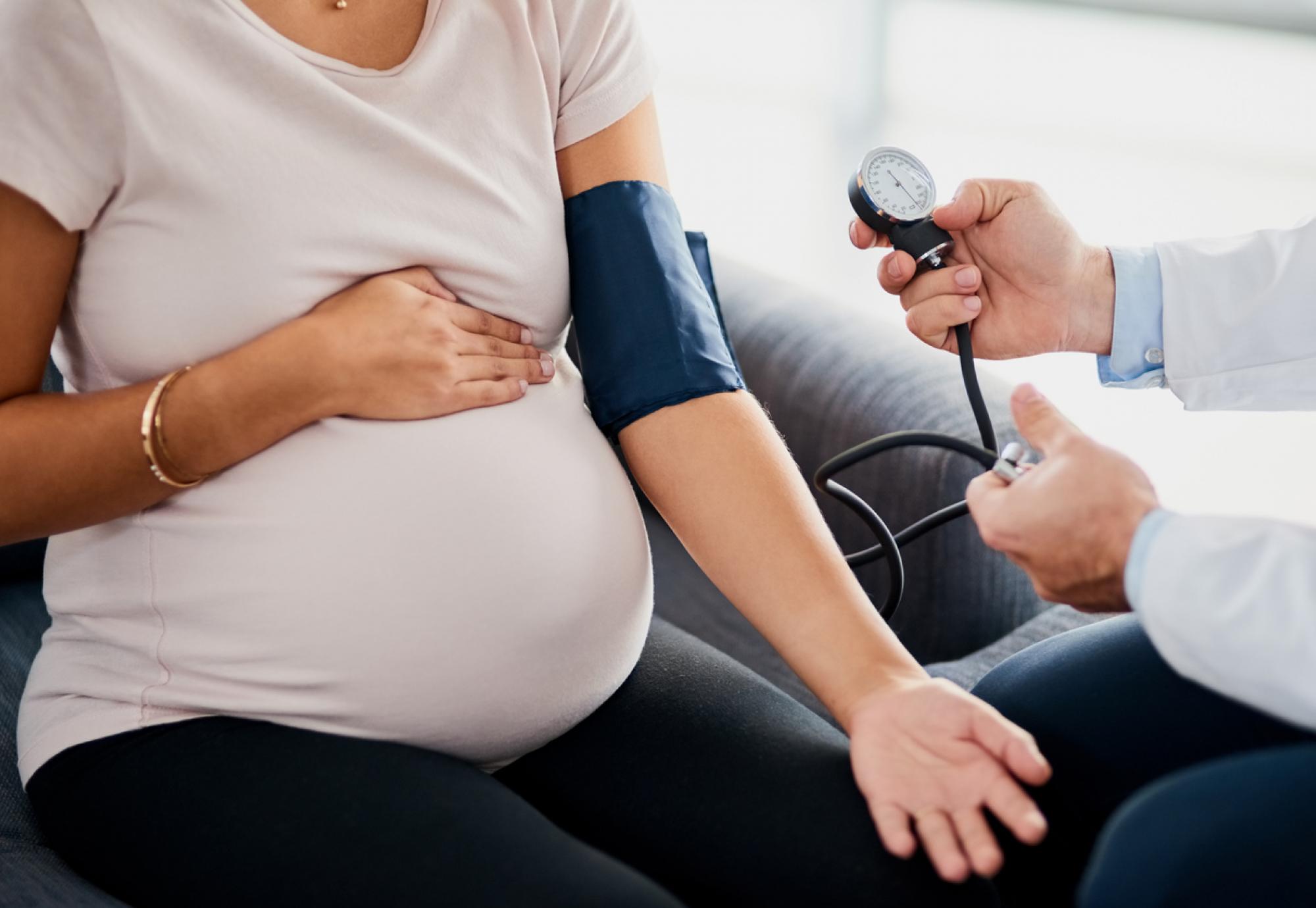Researchers at the University of Oxford, and clinicians at Oxford University Hospitals NHS FT (OUH), found that lowering a hypertensive mother's blood pressure within six weeks after giving birth could have a significant impact on reducing their risk of a heart attack or stroke. The research is funded by the British Heart Foundation (BHF) and published in Hypertension.
Data has shown that around one in ten women develop high blood pressure (hypertension) during pregnancy, which dramatically increases their risk of long-term high blood pressure, which can lead to a heart attack or stroke.
The researchers discovered that offering women personalised advice and blood pressure monitors, in the critical six-week window, and in the four years that followed, led to lower blood pressure.
It has been shown that increased blood pressure after pregnancy can cause the 'remodelling' of the mother's heart and blood vessels, and so researchers wanted to investigate whether controlling high blood pressure in the six weeks after birth, could help the heart and blood vessels 'recover' after a complicated high blood pressure pregnancy.
Acting during this time frame is believed to therefore 'reset' a woman's blood pressure to pre-pregnancy levels and prevent harmful long-term changes to the heart and circulatory system.
Dr Jamie Kitt, a BHF Clinical Research Training Fellow at the University of Oxford's Radcliffe Department of Medicine, and research lead, said: "High blood pressure during pregnancy leads to additional, adverse changes to the heart, brain and circulatory system due to the increased demands being placed on them.
"After pregnancy, changes to the heart and circulatory system should revert to their pre-pregnancy state. But, when a woman has high blood pressure during pregnancy, many of these changes remain. We're currently running a larger study that will help us to understand more about exactly why these changes occur and why these increase the risk of future poor heart health."
Researchers previously looked at whether new mothers monitoring their blood pressure at home every day for six weeks after a hypertensive pregnancy, had bigger reductions in their blood pressure, compared to new mothers usually receiving care.
Those who were given a blood pressure monitor and received personalised advice from doctors on adjusting their blood pressure-lowering medication in response to the readings, had lower blood pressure at six weeks and six months after birth.
Professor Paul Leeson, Professor of Cardiovascular Medicine at the Radcliffe Department of Medicine, and a Consultant Cardiologist at OUH, said: "Current clinical guidelines highlight that woman who have had a hypertensive pregnancy are at risk of future heart disease.
“However, they are not able to give advice on what interventions are available to reduce that risk. Our research has shown that self-monitoring at home can lead to significant improvements in blood pressure after pregnancy in both the short and long term.
"Further research is in progress to understand whether other interventions during this six-week period may also be of benefit. This work should generate the first evidence-based guidance about the best care and support for women after a hypertensive pregnancy to reduce their risk of developing heart and circulatory disease in future."
Dr Sonya Babu-Narayan, Associate Medical Director at the BHF, said: "High blood pressure affects one in 10 pregnancies and increases the risk that a woman will develop cardiovascular disease during her lifetime. But the opportunity to tackle this risk factor in new mothers is often missed after the birth of their child.
"This research illustrates the importance of providing the right care and support for women in the early weeks and months after giving birth to help them keep their blood pressure in a healthy range. The results are very promising and could lead to important changes in how we treat women who have had high blood pressure during pregnancy.”



















